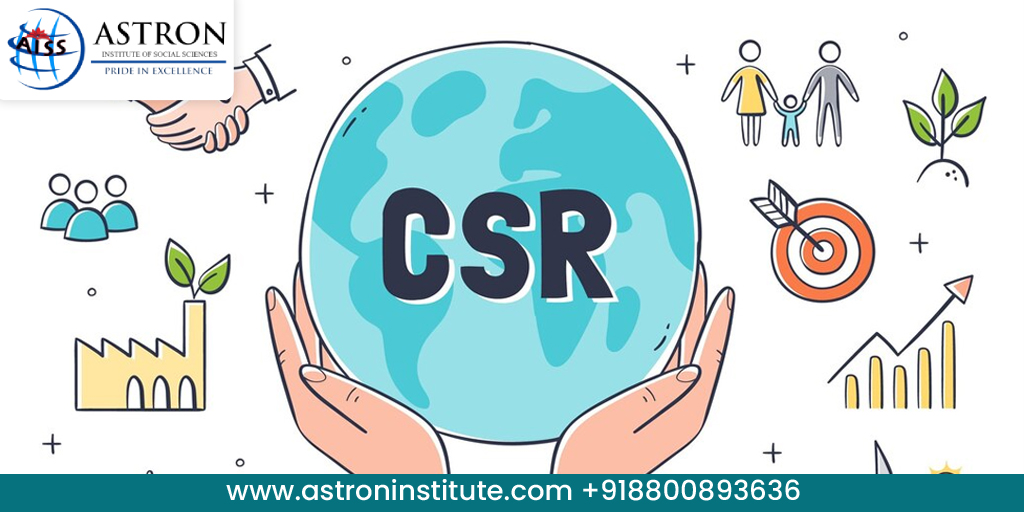Corporate Social Responsibility (CSR) is now a powerful tool for change in a country where millions of individuals still have no access to clean drinking water and basic sanitation. Through well-planned CSR programs, companies are moving beyond profit-making to significantly influence the communities they serve, especially on critical fronts such as cleanliness and water security. Aside from supporting good health, easy access to clean water and good sanitation also enhances education, gender equality, and overall quality of life. Due to this, many companies are investing in programs that address water shortages, offer sanitation infrastructure, and boost public awareness about good hygiene. Now we will discuss how CSR projects are improving access to clean water.
How are CSR Projects Improving Access to Clean Water and Sanitation?
Water Purification and Supply
Through creative supply and water treatment solutions, CSR projects often treat the deficiency in access to potable drinking water in rural and under-served areas. These involve putting in rainwater collection systems, reverse osmosis (RO) plants, borewells, and solar-driven water purification gear. To enable round-the-clock availability, many local authorities promote piped water delivery schemes. These interventions improve overall health outcomes and greatly reduce the incidence of waterborne diseases. Apart from enhancing living conditions, companies offering clean and reliable sources of water also assist in reducing time and labor, particularly for women and children who often fetch water.
Infrastructure Development
The development of water and sanitation infrastructure is among the greatest achievements of CSR activities. Corporations often finance the construction of hand-washing stations, sewage and wastewater treatment plants, and toilets in rural and school areas. Apart from improving hygiene standards, these activities empower communities, especially women and girls, by promoting dignity, reducing health hazards, and enhancing school enrolment. These CSR activities are imperative for sustained community development and quality of life because access to proper sanitation facilities has a direct positive impact on public health and reduces the rate of water-borne diseases.
Hygiene Awareness Campaigns
For sustained impact, behavior change is necessary; building infrastructure alone will not do. CSR supports campaigns to build community awareness of simple hygiene practices such as handwashing, menstrual hygiene, and water conservation. To ensure culturally appropriate messaging, these initiatives often include school workshops, street theater, educational posters, and collaborations with local health professionals. These initiatives instill a culture of hygiene and prevent disease outbreaks by encouraging healthier daily habits. Awareness campaigns also ensure comprehensive development outside physical well-being by equipping individuals, especially young girls, with knowledge that facilitates their well-being, school attendance, and participation in communal life.
Innovation and Collaboration for Greater Reach
To pilot novel solutions such as IoT-based water quality monitoring systems or mobile apps for sanitation reporting, companies partner with NGOs, government agencies, and digital entrepreneurs. Companies leverage these technologies to enhance project accountability and impact through transparent reporting and real-time monitoring. Also, collaborative models ensure interventions align with existing government programs like Jal Jeevan Mission and Swachh Bharat Abhiyan. CSR projects can grow more effectively, more accurately address local requirements, and ensure that clean water and sanitation access becomes a human right and not a privilege by fostering innovation and cross-sector partnerships.
Community Engagement and Sustainability
A key to any CSR activity’s success is sustainability. To ensure long-term impacts, many companies go out of their way to involve local communities in their efforts. Locals or volunteers are educated to operate and maintain handwashing facilities, restrooms, and water filtration systems. Beyond creating local employment opportunities, this creates a sense of responsibility and ownership. Since the recipients become infrastructure stewards, community-based models are stronger. The project is more than a donation due to this grassroots engagement, which ensures that systems remain in operation long after the company’s direct involvement has ceased. It also becomes an empowerment legacy.
Conclusion
Clean water and sanitation CSR programs are public health, education, and sustainable development strategic investments that go far beyond philanthropic efforts. Corporations are making the world a healthier, fairer place with every borewell drilled, toilet built, or hygiene session conducted. Astron Institute supports CSR projects that focus on clean water and sanitation.




